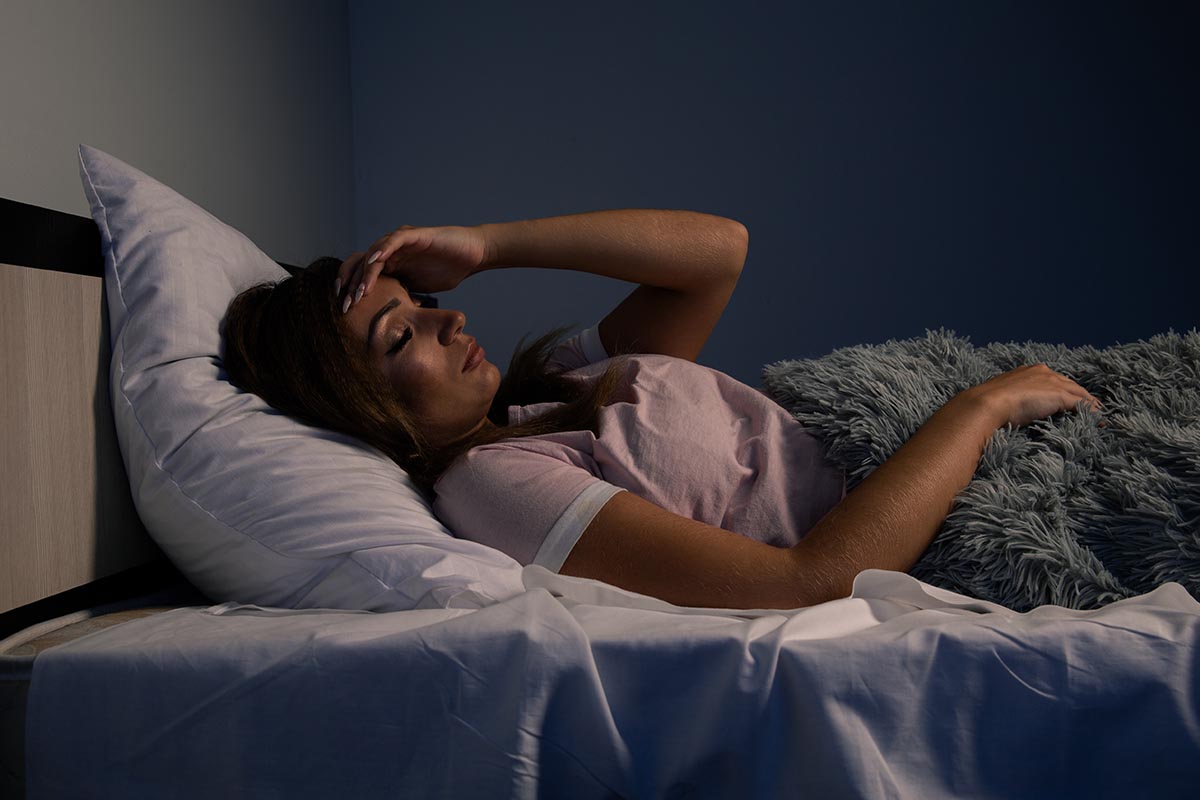If you are having trouble falling asleep at night, you should know that this is a common problem. There are countless people who simply do not get enough sleep on a nightly basis. You might wake up the next day feeling tired, irritable, and could even have trouble focusing at work or at school. You might be thinking about medicating yourself with alcohol and drugs in order to fall asleep; however, this could actually be counterintuitive. Substance abuse and withdrawal syndromes can actually make it harder for you to fall asleep and stay asleep at night. Furthermore, if you have a history of substance use disorders, turning to drugs and alcohol to sleep can raise your chances of suffering a relapse. Therefore, it is important for you to take a closer look at the relationship between substance abuse and sleep.
Which Drugs Can Impact Your Sleep?
There are a number of substances that can make it harder for you to get a good night’s sleep. While alcohol and some drugs might help you fall asleep faster, they can cause you to wake up in the middle of the night or not get the deep sleep that your body needs.
Some of the most common substances that can contribute to sleep difficulties include:
- All types of alcohol including beer, wine, and liquor
- Marijuana
- Certain prescription medications such as antidepressants
- Nicotine, which is found in cigarettes and vaping products
- Illicit substances including methamphetamine, heroin, and cocaine
Furthermore, there are even some over-the-counter medications that can contain caffeine, which might keep you awake at night.
How Does Substance Abuse Impact the Quality of Your Sleep?
In addition to common side effects of medications that might keep you awake at night, substance use disorder itself can impact the quality of your sleep. For example, substance abuse can lead to nighttime wakefulness, which causes a state of hyperarousal and makes it hard for your body to fall into REM sleep, which is restful sleep.
Overall, substance use disorders can lead to less restful sleep, reduce overall sleep time, and can even cause you to feel sleepy during the day as a result. This can impact your mood, your productivity, and your relationships with your family members and friends.
Withdrawal Symptoms Can Make It Harder for You to Fall Asleep
Finally, it is also important to understand the impact of withdrawal symptoms on sleep quality. If you suffer from a substance use disorder, you may start to develop a variety of symptoms when you go for a while without that addictive substance. Some of the most common symptoms of withdrawal include fevers, shakes, and chills. Additional symptoms that can directly impact your sleep quality include insomnia, broken sleep, unusual dreams, nightmares, and restless leg syndrome. All of these problems can impact not only your physical health but mental health, making a recovery harder.
You might experience these withdrawal symptoms when going through detox from stimulant medications, cocaine, alcohol, opioids, prescription medications, and marijuana. Ultimately, substance abuse can lead to a wide variety of sleep issues. That is why it is important to reach out to trained professionals who can help you with substance abuse treatment.
Contact Westwind Recovery® for Help with Substance Abuse and Sleep
If you are looking for assistance with substance abuse treatment in Los Angeles, California, then reach out to Westwind Recovery®. At Westwind Recovery®, we provide advanced addiction therapies, including sleep treatment. We are aware that sleep difficulties can arise in individuals who suffer from substance abuse disorders, and we’re ready to help you recover. Contact us today at 855.340.8832, or contact us online to learn more about how we can help you begin to heal.

Dr. Deena is the Chief Clinical Officer of Westwind Recovery®, an award-winning outpatient treatment center in Los Angeles where she oversees the clinical and administrative program and treatment methods. Dr. Deena is a doctor of psychology and licensed clinical social worker since 1993. LCSW #20628. Originally from the East Coast, Dr. Deena has worked running treatment centers, worked as a therapist in psychiatric hospitals as well as school settings and currently has a thriving private practice in the LA area. Dr. Deena has appeared regularly on the Dr. Phil Show as an expert since 2003. She has also been featured on many other TV shows, podcasts and has contributed to written publications as well as podcasts.



